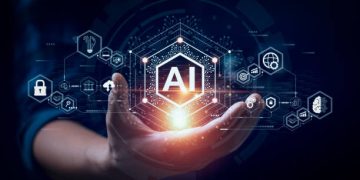Artificial intelligence (AI) has been a topic of interest for over 70 years, despite the recent surge in attention. Understanding its evolution helps contextualize current advancements and future directions.
The mathematician and computing pioneer Alan Turing published a seminal article in 1950, opening with the question, “Can machines think?” He introduced the concept now known as the Turing test, proposing that a machine could be considered intelligent if it could mimic human responses indistinguishably in a conversation.
In 1955, the term “artificial intelligence” was first used in a proposal for the Dartmouth Summer Research Project on Artificial Intelligence. This marked the formal beginning of AI as a field of study.
From the 1960s onwards, a branch of AI known as expert systems emerged, designed to capture human expertise in specialized domains. These systems, examples of symbolic AI, used explicit representations of knowledge. Notable successes included systems for identifying organic molecules, diagnosing blood infections, and prospecting for minerals. For instance, the R1 system reportedly saved Digital Equipment Corporation $25 million annually by optimizing minicomputer configurations.
Expert systems allowed subject specialists without coding expertise to build and maintain knowledge bases, with an inference engine applying this knowledge to solve problems and provide explanations. These systems were particularly popular in the 1980s and remain useful today.
The Emergence of Machine Learning
In parallel, the field of connectionism aimed to model the human brain’s neural networks. In 1943, researchers Warren McCulloch and Walter Pitts developed a mathematical model for neurons. This laid the groundwork for later developments like the multi-layered perceptron (MLP) in 1986, which became a practical tool for learning from data and generalizing from training examples to classify new data.
MLPs, consisting of several interconnected layers of simulated neurons, adjusted numerical weights on connections to optimize classifications. This capability extended to various applications, such as handwritten character recognition, provided the data was appropriately formatted.
Advancements in AI Models
Following the success of the MLP, new neural network forms emerged, including the convolutional neural network (CNN) in 1998, which added layers for feature identification, eliminating the need for pre-processing. Both MLPs and CNNs are discriminative models, used for classification and decision-making tasks.
Generative neural networks, which create new outputs from large training datasets, have also gained prominence. Generative-adversarial networks (GANs) and transformer networks are notable examples. GANs leverage an adversarial component to enhance quality, while transformer networks, exemplified by models like GPT-4, are trained on extensive datasets and improved through reinforcement learning.
These models have achieved a generalization capability, covering a wide range of topics beyond narrow specialized domains.
Future Directions of AI
While the capabilities of large language models (LLMs) have led to concerns about AI dominance, experts argue that these fears are unfounded. The trajectory of AI development remains focused on enhancing capacity, reliability, and accuracy, rather than achieving consciousness.
AI has numerous promising applications, and a combination of techniques, including symbolic AI, will continue to play a significant role. For example, driverless cars can use pre-programmed road rules, and medical diagnosis systems can be cross-referenced with medical knowledge for verification.
Overall, the future of AI involves integrating various techniques to harness the strengths of both symbolic and machine learning approaches, promising exciting advancements across multiple domains.
Your source for supply chain report news updates: The Supply Chain Report. For international trade insights and tools, head to ADAMftd.com.
#AIHistory #AIEvolution #ArtificialIntelligence #MachineLearning #NeuralNetworks #AlanTuring #SupplyChainNews















